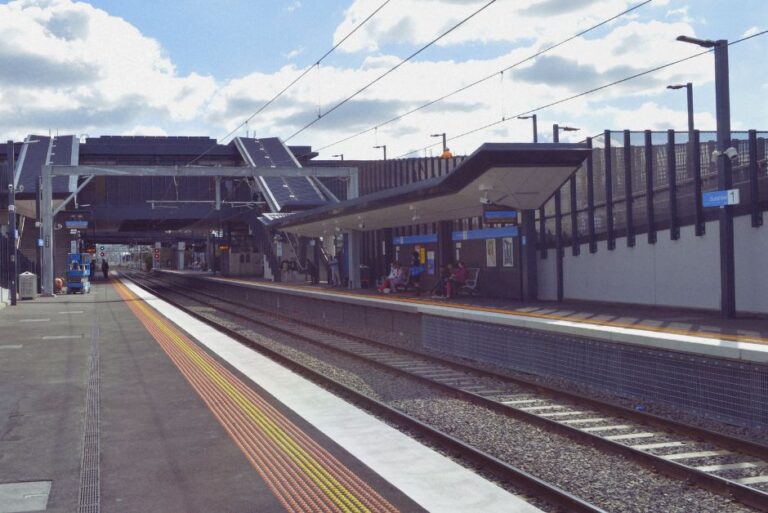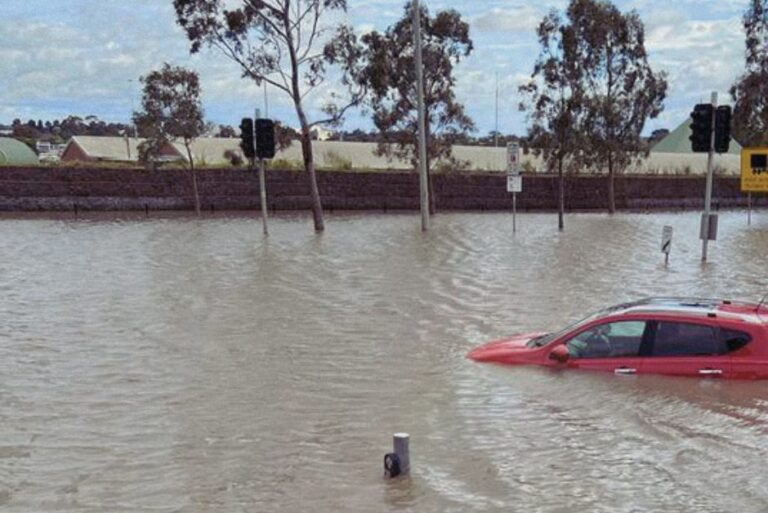October 31st 2024, 5:53pm
Parliament of Victoria | Legislative Council
David ETTERSHANK (Western Metopolitan):
I rise to make a contribution on the Roads and Road Safety Legislation Amendment Bill 2024. The bill before the house seeks to make a number of amendments to the Road Safety Act 1986. It imposes a 24-hour truck ban in the inner west, using cameras to detect noncompliant heavy vehicles driving in no-truck zones; it provides certainty around the validity of digital drivers licences and learners permits; it clarifies contractual arrangements for the sale or transfer of registered numberplates; and it improves the administration of infringement processes.
We will also be moving an amendment to this bill, which I will talk to in a moment. Firstly, let me commend the government for delivering on the 24-hour truck ban. As I have raised in this place previously, communities in the western suburbs, particularly in Footscray and Yarraville, have long called for a truck ban to mitigate the pollution and noise generated from the ever-increasing heavy traffic vehicles in the west. The 24-hour truck ban as part of the West Gate Tunnel Project will remove an estimated 9000 trucks from local streets each day. Needless to say, the community are happy and relieved at this important change. The truck cameras are also a great piece of world-leading technology, and I suspect many members will look longingly at my region and wonder when they can get truck cameras installed in their electorates. It is actually quite a startling reversal of electorate benefits. We do not often get to claim such wins in the west, so this one is very, very welcome, and I commend the minister and her staff for the work that they have done on this important initiative.
Moving on to Legalise Cannabis Victoria’s amendments to the bill, under standing orders I wish to advise the house of amendments to this bill and request that they be circulated.
Amendments circulated pursuant to standing orders.
Since the beginning of our parliamentary tenure, Legalise Cannabis have advocated for medicinal cannabis patients to be treated like any other person on legally prescribed medication who is not impaired when driving. This amendment is an interim step while the government considers broader reform, particularly in the context of the closed-track driving trial.
In 2016 Victoria became the first Australian state to approve the use of medicinal cannabis. Unfortunately, our road laws were not amended in conjunction with this reform, so it remains an offence under sections 49(1)(bb) and 49(1)(h) of the Road Safety Act to drive with cannabis, or more specifically THC, present in oral fluid. I will use those two terms, THC and cannabis, interchangeably during this speech. As these sections do not distinguish between medicinal and illicit cannabis, medicinal cannabis patients will be captured by a positive roadside test. These offences were created and inserted into the Road Safety Act in 2003, well before medicinal cannabis became lawful in Victoria. This was back when a positive test for cannabis could only mean illicit cannabis, but now lawful medicinal consumption is being captured by those same sections and subject to the same penalties. This is not the case with any other medication, where the Road Safety Act provides a defence, so a driver taking opiates or sedatives, for which there are both licit and illicit markets, has a right to their day in court. They have access to judicial discretion, a right enjoyed by any other Victorian taking a legally prescribed medication. But no such right exists for unimpaired medicinal cannabis patients who test positive to the presence of THC.
So how does the current law work? Under section 50(1E) of the Road Safety Act, if a medicinal cannabis patient tests positive, a magistrate must – and I say ‘must’ – cancel that drivers licence for six months for a first offence and 12 months for a subsequent offence. The only exception is if a driver receives an infringement notice for drug driving, in which case they will have their licence suspended rather than cancelled, and it will be returned once the suspension period has ended. However, if a drivers licence is cancelled, the driver will have to apply in court to be relicensed. They do not automatically get their licence back. They must apply to a court for another licence when the disqualification period ends. But first they must successfully complete a drug driving behavioural change program, a program solely designed for illicit drug users and recidivist drink drivers, where they are treated as criminals. They must literally go to those sessions and commit to not taking their legally prescribed medication. I am told this is excruciating for the patient and the program supervisors alike. They must then attend court to apply for a licence eligibility order court hearing and then attend that hearing at least 28 days later. If the order is granted by a court, the person can then attend VicRoads to apply for their licence to be reissued. Wait times and fees apply at each step, as well as a gruelling pile of paperwork. This is for people taking lawfully prescribed medicine.
And there is more. Despite no alcohol having been involved in the driver’s actions, a relicensed driver will be given a Z condition on their licence, so they cannot have any alcohol in their system when driving for the next three years – any alcohol whatsoever. It is punitive in the extreme – and, again, these people are taking a lawfully prescribed medicine. They are obeying the law. This conundrum was mentioned in the consultation paper on our proposed amendment, which was tabled yesterday. Former magistrate Tony Parsons consulted with legal experts, one of whom observed that:
[It] is an odd situation to have a legal right (to take prescribed medicinal cannabis) then if you comply strictly with the obligations that come with that legal right, you can still be guilty of an offence.
The government has long recognised the need to resolve this issue and is undertaking a controlled closed-track driving trial to look at the effects of cannabis on driver performance. The trial will conclude sometime in mid-2026, and we may see some legislation in the next term of Parliament, in 2027 or thereabouts. For the thousands of medicinal cannabis patients in Victoria who risk losing their licences every time they drive, this is just too long to wait. What our amendment proposes is an interim solution for those Victorians which will operate until the completion of the trial and any consequential legislative outcome. It amends the act to allow discretion for a court in deciding whether to cancel or disqualify the licence of a person who is found with THC in their system if it is prescribed medicinal cannabis and it was taken in accordance with the doctor’s prescription. This only applies to the offence of driving with the presence of THC, not where impairment is alleged. Under the new provision, the court is given discretion to apply the penalty of loss of licence. It may, rather than must, cancel a drivers licence. Currently a magistrate has no choice but to cancel or suspend a drivers licence irrespective of any context or mitigating circumstances. The court is denied any discretion other than the quantum of the fine.
To be clear, what our amendment does not do is make it legal to drive with THC in your system. The amendment does not make any changes to what the offence is or to roadside drug-testing programs. It is still an offence to drive whilst impaired. It is still an offence to drive with THC present in your system. It will be the driver’s responsibility to demonstrate that they hold a valid prescription from a prescribing health professional – for example, the actual prescription or the current container in which the cannabis was dispensed by the pharmacist or a signed letter from the prescribing doctor. If they can and there is no evidence of impairment, a magistrate may look at all the facts of the individual case and then consider whether to suspend or cancel the drivers licence. It allows the magistrate to exercise some discretion, something that they do every day, and it allows you to have your day in court, nothing more. Patients on legally prescribed medication deserve that.
I have spoken before about the far more impairing drugs that we do not test for. We hear from so many medicinal cannabis patients who were previously prescribed opioids and benzodiazepines but stopped taking them, some of them suffering horrendous withdrawals because of the terrible side effects. The phrase ‘zombie-like’ has been used by more than a few people to describe the effects of being on these incredibly strong medications. These people found medicinal cannabis provided incredible relief in treating their conditions without the harmful debilitating effects they experienced when using opioids and benzos. Some of these same people are being forced to revert to using those harmful, impairing drugs rather than risk losing their licence. It is simply not fair. Our amendment calls for judicial discretion in this matter, and to those who may be opposing the amendment – and I thank you, Mr Mulholland, for your indication of support for this amendment; it is greatly appreciated, as is the support of the government – and to any who do indicate that they are opposing this amendment, I ask: are you doubting the judiciary’s ability to decide this issue? One thing that came out loud and clear from Mr Parsons’s excellent consultation process is that the judiciary is expected to exercise this sort of discretion on a daily basis, just not for medicinal cannabis patients.
As I said earlier, we do acknowledge the government progressing this issue through its closed-track driving trial, but we may not know the results of the trial until 2026, and there may be no legislative change until the next parliamentary term. We simply cannot leave people who legally consume medicinal cannabis without a remedy until then. They have been waiting for too long already. I remind members that this amendment seeks an interim measure only, and we urge you to support it. Broader reform might be reconsidered once the closed-circuit driving trial is completed.
Once again, may I just reiterate that we applaud the Allan government for moving to address this issue, and we appreciate their support through this process. I commend the bill to the chamber.
[ENDS]





